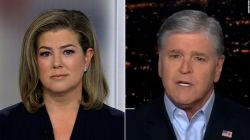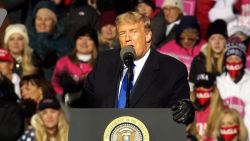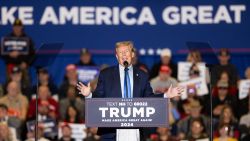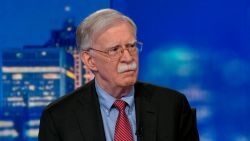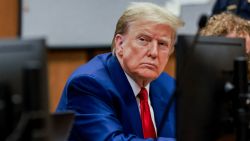Voters have voted!
With the Iowa caucuses and New Hampshire primary now behind us, the shape of the 2020 Democratic field is both a) clearer and b) different.
The biggest change is that we now have a clear Top 2, in the form of Vermont Sen. Bernie Sanders and former South Bend, Indiana, Mayor Pete Buttigieg, who took the top spots in each of the first two contests.
So who’s the front-runner? We say Sanders for now – for a few reasons.
First, Sanders has some demonstrated appeal among black and Latino voters, who will start to have a much bigger say in the nomination fight beginning with the Nevada caucuses on February 22. Buttigieg remains a wholly unproven commodity among those influential voting blocs. He may benefit from momentum gathered in the first two states but that remains to be seen.
Second, no one can raise money like Sanders. His vast online small-dollar donor base is the envy of every other candidate in the field, providing him a massive influx of cash seemingly whenever he needs it. (Sanders raised $25 million in January alone.) That unending spring of donations mean that Sanders is fully equipped to go the distance (and beyond) in the primary and caucus process over these next months. Buttigieg, while drastically overperforming fundraising expectations throughout 2019, still isn’t in the same universe as Sanders.
Third, Sanders has done this whole national campaign thing before. He ran in every primary and caucus against Hillary Clinton in 2016. That helped him build organizations in most if not all of these states. It exposed him to voters. And it taught him how to pace himself to survive the slog. That’s a big edge – especially considering that Buttigieg has never even run for statewide office before.
Without further ado, our brand new Top 5 – the five candidates most likely to wind up as the Democratic presidential nominee against President Donald Trump in November.
5. Amy Klobuchar: Somehow, someway, the senior senator from Minnesota is still in this race. Following a strong debate performance last Friday, Klobuchar catapulted herself to an impressive third-place finish (at 20%) in the New Hampshire primary. The electability case for her is clear: three times she’s vastly outrun the average Democrat in a key Midwestern state. Klobuchar, though, hasn’t won a contest yet and is well behind in the national polls. Massachusetts Sen. Elizabeth Warren, who finished a disappointing third in Iowa and an even more dispiriting fourth in New Hampshire, remains in the race but has no obvious path to the nomination – for now. As Warren has slid, Klobuchar has risen. (Previous ranking: Unranked)
4. Michael Bloomberg: The former New York City mayor couldn’t have hoped for a better first 10 days of voting than he’s gotten. Sanders, the most liberal candidate in the field, installed as the front-runner. Former Vice President Joe Biden, the establishment centrist, badly flagging. And Trump taking to Twitter on a daily basis to slam “Mini Mike” – thereby elevating the billionaire in the eyes of the casual voter. Plus there’s this: Bloomberg has spent upwards of $350 million on advertising, which appears to be working as he is rapidly rising in national polls and in states set to vote on March 3 and later. (Previous ranking: 5)
3. Joe Biden: It’s not good for the former vice president. Biden followed up a disappointing fourth-place finish in Iowa, with an even weaker fifth-place showing in New Hampshire. Not surprisingly, he’s stumbled in the national polls in the aftermath. The good news for Biden, and why he’s not completely out of it, is that the primary calendar turns to more favorable terrain in the diverse states of Nevada and South Carolina. Make no mistake, though: Biden must win soon, or it’s goodnight. (Previous ranking: 1)
2. Pete Buttigieg: Buttigieg is the most naturally talented candidate left in the race, and he’s turning his potential into actual votes – winning in Iowa and coming in a surprisingly close second in New Hampshire. If he can find a way to connect with Hispanic voters (in Nevada) and black voters (in South Carolina) the way he connected with (predominantly) white voters in Iowa and New Hampshire, he will move into the top spot in our rankings. (Previous ranking: 3)
1. Bernie Sanders: The revolution is in the driver’s seat. Sanders has received the most votes in Iowa and New Hampshire. He’s taken the lead in the national polls, looks like the only candidate who can count on crossing the 15% threshold in most states, and has the money to go the distance. The problem is that he won New Hampshire with the lowest vote share in modern history, and has the lowest share of any national poll leader on the Democratic side since Democrats went proportional with a 15% threshold in 1992. Sanders is the front-runner, but he’s a weak one. (Previous ranking: 1)













